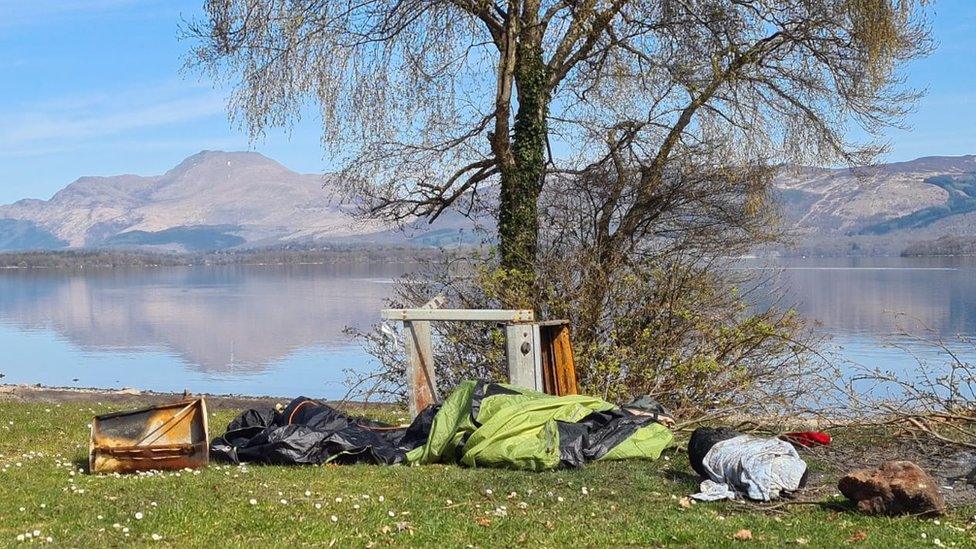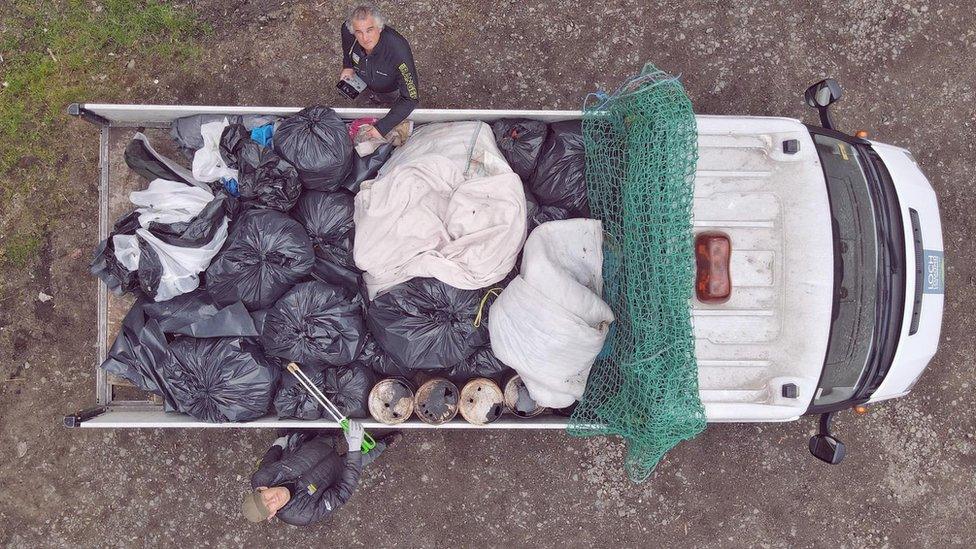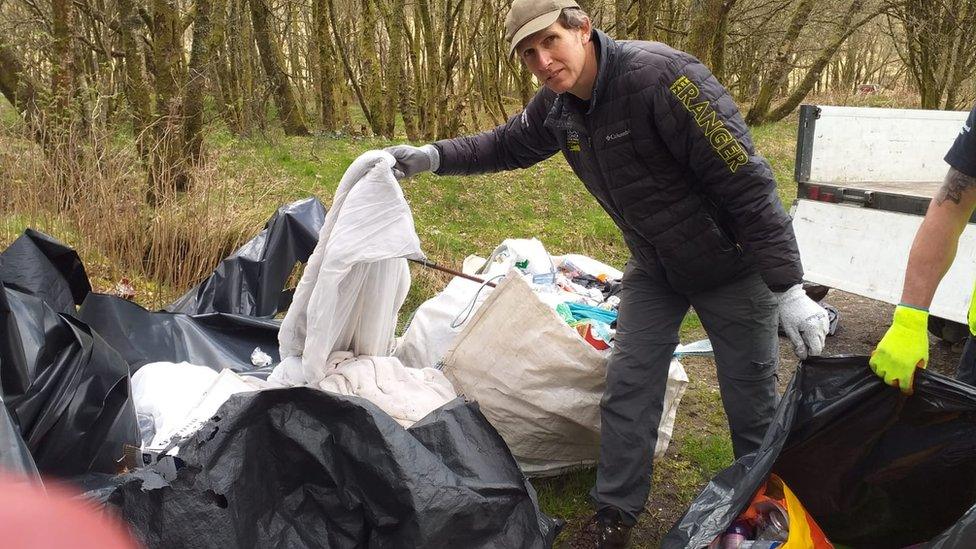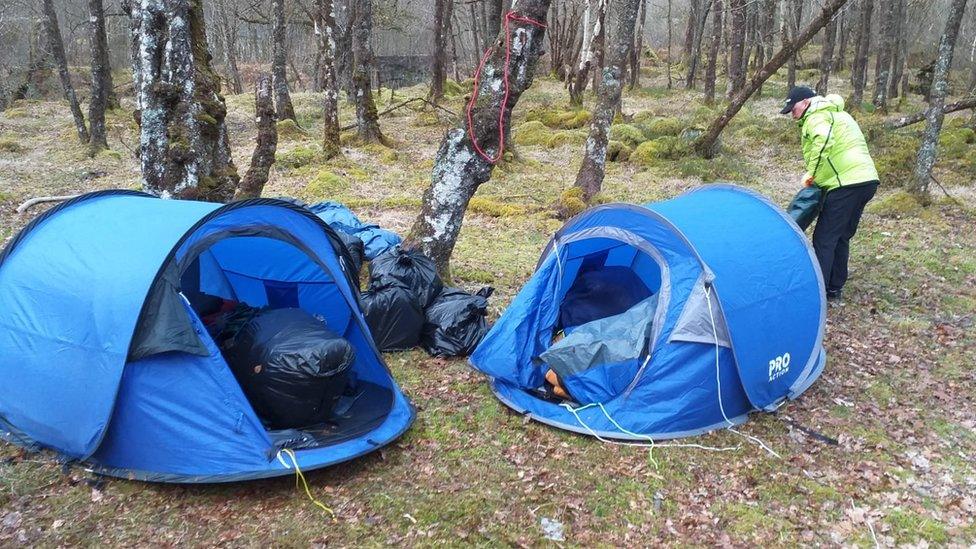Loch Lomond and the Trossachs rubbish fills more than 1,000 bags
- Published

Visitors are being asked to help keep the area tidy after the recent clean-up
More than 1,000 bags of litter have been cleared from the Loch Lomond and The Trossachs National Park in the space of a month.
Staff from the National Park Authority (NPA) carried out the April clean-up with help from local councils.
A "staggering" 1,203 bags of rubbish were collected with particular focus on stretches of the A82.
The NPA said it was now up to visitors to help keep the area clean heading into a bank holiday weekend.

Thousands of bags of rubbish have been removed from the national park
Three new environment officers have been hired this year specifically to tackle litter and waste within the national park.
The NPA said communities, businesses and individuals had also been keen to get involved and help protect the area.
Fortnightly volunteer clean ups will start in May and communities are organising their own initiatives to help tackle the issue.
However, the NPA said the general public coming to the area also had a part to play.

The clean-up of the area was carried out throughout April
Director of environment and visitor services Simon Jones said: "We have dedicated staff time right through April to help clean the national park up before the influx of visitors we are expecting this summer.
"We've seen a big difference already with visible improvements on the A82 in particular.
"Despite this effort from our staff, partners, local businesses and communities, there is more to be done, so we are calling on everyone to take responsibility for respecting and protecting this special place."
He said litter was a "serious threat" to wildlife in the area and it also affected local communities and visitors' enjoyment.

A surge of visitors is expected in the days and months to come
Mr Jones said extra bins, toilets and staff were in place to help tackle the issues they had experienced last year.
"But simply dedicating more and more resources to clearing litter up isn't sustainable, or the answer long term," he said.
"We have laid the groundwork with a big push on tackling litter but we want our rangers to be on the ground helping people, not picking up after them.
"By bagging up their litter and taking it home if bins are full, visitors can play their part by leaving no trace of their visit."